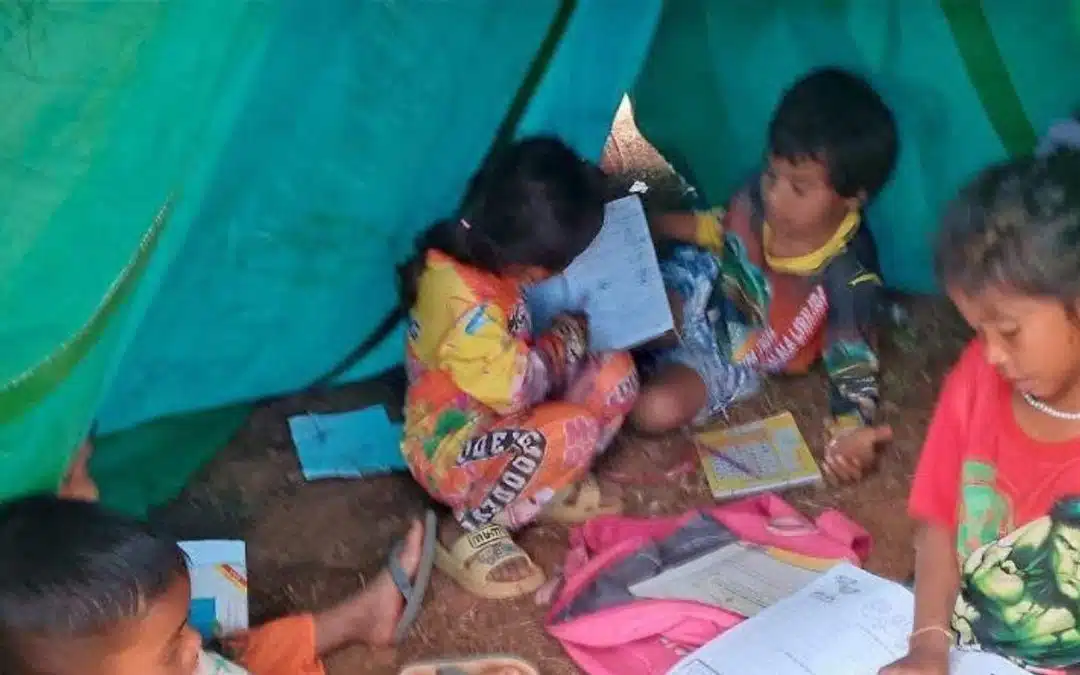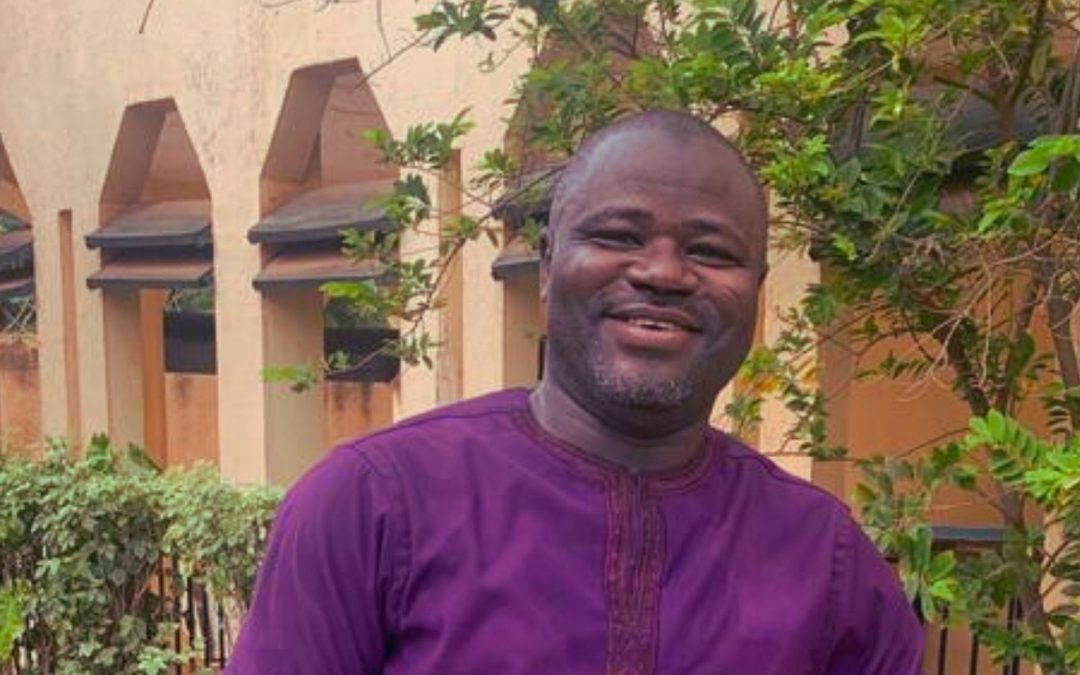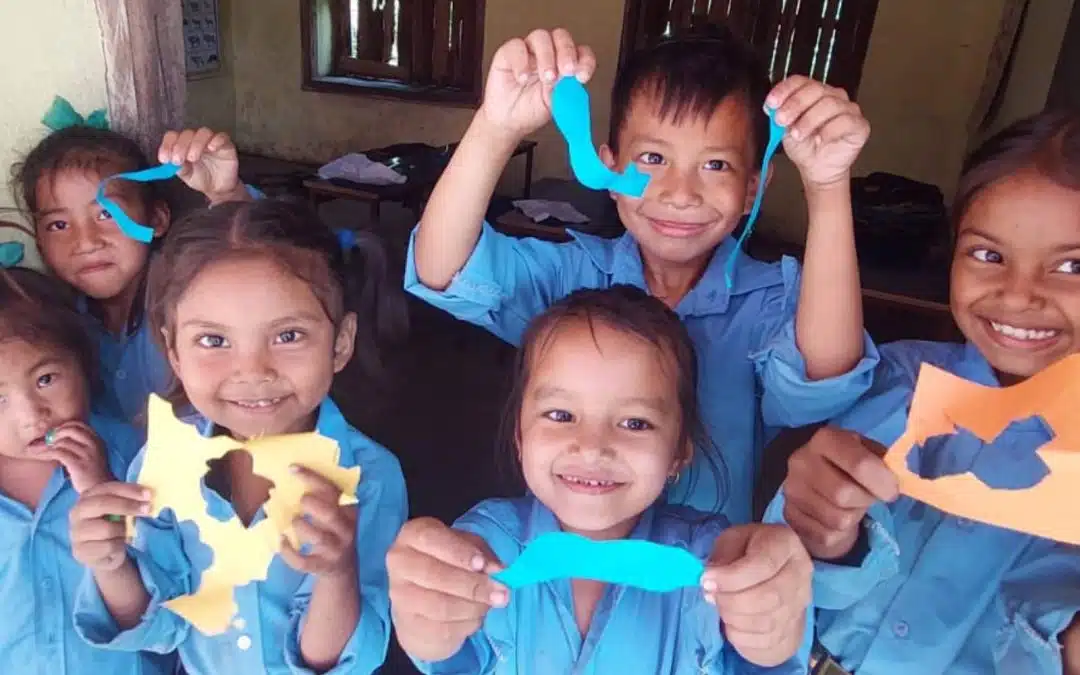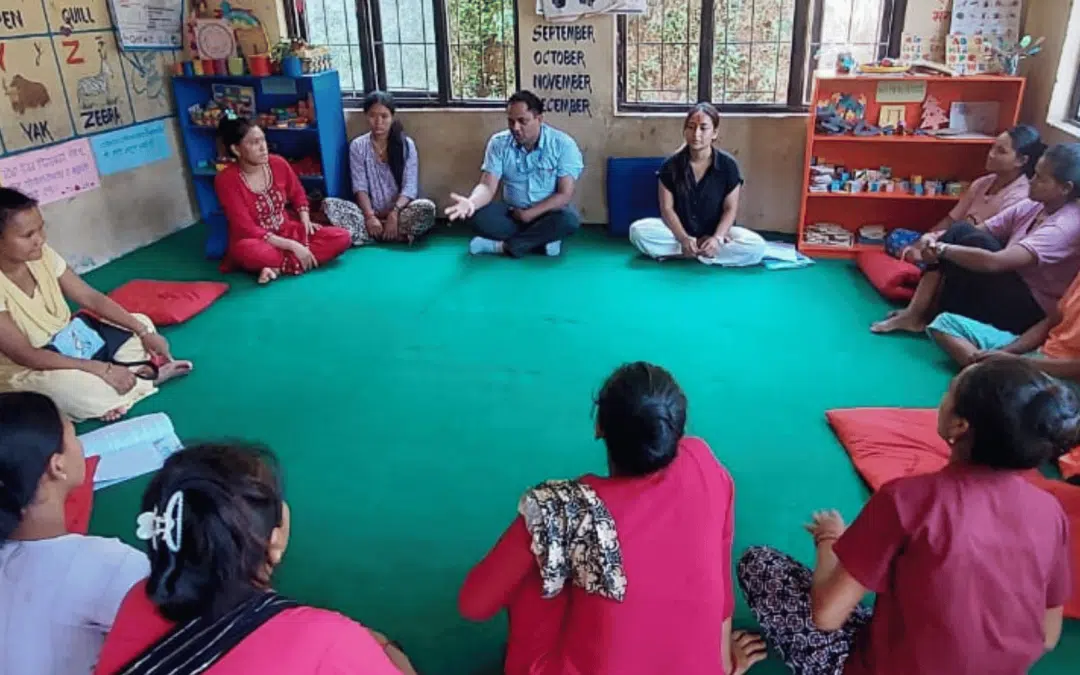Arpita is a teacher at an Anganwadi center that serves as a kindergarten for children aged 3 to 6 in Indian villages. She works in 2 of the 170 centers in the Birbhum district (West Bengal) that our partner Tomorrow's Foundation has been supporting since October 2023 to better prepare children for their entry into elementary school.
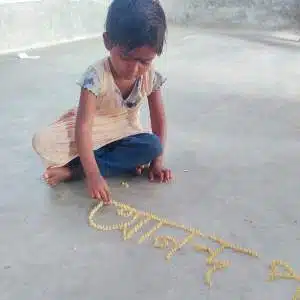
With the definition of its Integrated Child Development Scheme (ICDS) back in 1975, the Indian government wanted to focus on the protection and education of children aged 3 to 10. To this end, centers called "Anganwadi" were set up in villages to take care of children aged 3 to 6, for 3 hours a day, and ensure their early development. In reality, however, not all these community centers function properly, especially in villages where the country's most disadvantaged castes and tribes are concentrated.
From its experience in these most remote villages, Tomorrow's Foundation testifies that 90 % of children encounter difficulties in acquiring basic literacy and numeracy skills in elementary school, which considerably hinders their academic progress.
This is why the association decided to launch the Anandapath project last autumn, in collaboration with the Birbhum district authorities, to strengthen pre-school education in these villages.
"Namaste. My name is Arpita Modal and I'm a primary school teacher. I've been involved with Tomorrow's Foundation projects for 1 and a half years. I work in 2 pre-school centers: one in Banagram and the other in Baidyapur. Ever since I was a little girl, I wanted to become a teacher. That's why I joined the Anganwadi centers. I really enjoy my work, playing and learning with the children. I'm very grateful for the chance to spend my days with them".
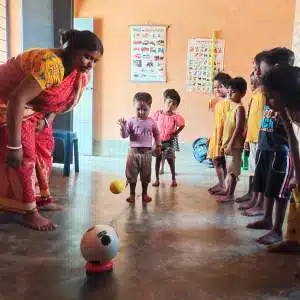
Since the launch of the project last October and the signing of a partnership agreement with Birbhum's ICDS department, Tomorrow's Foundation has recruited over 80 local young people to join the centers' animation teams. They have benefited from a 7-day training course on early childhood development before being assigned to the 170 Anganwadi centers supported by the project.
By January 2024, 4,200 children had completed assessments that will serve as a benchmark for evaluating their progress.
During the second quarter of 2024, the project organized almost 500 meetings mobilizing over 3,600 village members to raise awareness and involve them in the project's success. These sessions focused on attendance monitoring, parental involvement and data analysis, while also delving deeper into parenting support techniques. These meetings are the cornerstone of the commitment of the whole village, from local authorities to parents, to the future of their children.
An adventure to follow...

